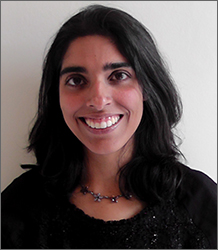 I joined the Centre for Medical History and the Lifestyle, Health and Disease project at Exeter as a Wellcome Trust Research Fellow in October 2014. I am also a collaborator with the interdisciplinary Hubbub group based at the Wellcome Collection, London, exploring notions of rest and busyness, and an affiliated research scholar in the Department of History and Philosophy of Science, University of Cambridge.
I joined the Centre for Medical History and the Lifestyle, Health and Disease project at Exeter as a Wellcome Trust Research Fellow in October 2014. I am also a collaborator with the interdisciplinary Hubbub group based at the Wellcome Collection, London, exploring notions of rest and busyness, and an affiliated research scholar in the Department of History and Philosophy of Science, University of Cambridge.
My current research examines the growth of therapeutic relaxation in twentieth-century Britain, in relation to chronic-disease prevention, pain-management and health and wellbeing advocacy. The notion of ‘balance’ has been integral to the establishment and proliferation of relaxation training and practices in the workplace, clinic, community and home. Yoga, antenatal and postnatal classes, for example, alongside stress and pain management clinics, routinely incorporate and promote relaxation techniques as a means of achieving balance between working and domestic lives and activities of the mind and body. My research probes the historical and socio-political contexts in which both relaxation strategies and concepts of balance have been constructed and deployed to influence lifestyle, health and disease.
Prior to joining Exeter, I was a Research Fellow in Arts and Humanities at Clare Hall, University of Cambridge, where I researched and lectured on twentieth-century history of medicine, global health and medical humanitarianism. My past work has primarily focused on organ transplantation, heart disease and the relationship between medicine and the media, and I am the author of Hearts Exposed: Transplants and the Media in 1960s Britain (2009), which was shortlisted for the Royal Historical Society’s Whitfield Prize for the best new book on British history.
